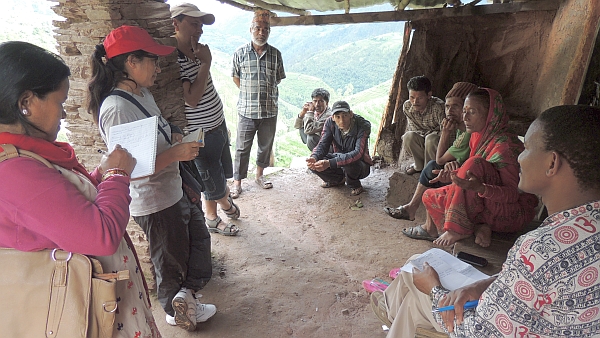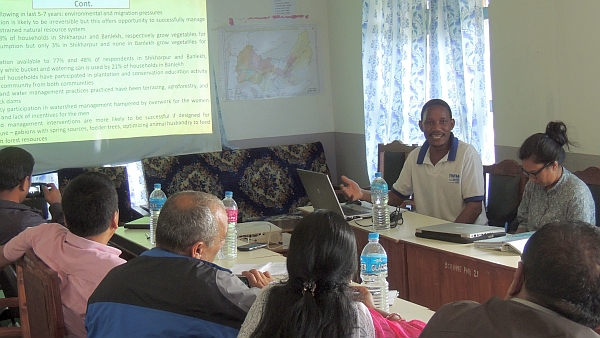IWMI Nepal is conducting research for a project entitled ‘Watershed Hydrology Impact Monitoring Research’. The findings will be used by the Government of Nepal to increase climate change resilience by improving water reliability in the mountain communities of Nepal, specifically through improved spring and surface flows.

The Building Climate Resilience of Watersheds in Mountain Eco-regions (BCRWME) agency is in charge of implementation, while IWMI has teamed up with local professors and PhD students to inform the placement of data collection tools such as precipitation and flow gauges. From July 18 to 22, IWMI researchers Ambika Khadka and Romulus Okwany visited their two pilot study sites in the Far West region of Nepal to monitor the progress of data collection and coordinate with the local implementation unit. The field assistants showcased the weather stations that collect nearly a dozen climatic variables every minute, and the team was impressed by their diligent work in collecting samples for isotopic analysis. These data will allow the implementation unit to understand the best place for aquifer recharge basins, an important facet of improved spring flows.

The team met the field assistants to discuss details and queries related to methodologies, as well as to share the larger vision of the project with them. This will be crucial to the success of the project, as the field assistants will be able to better inform IWMI of any potentially damaging community developments, such as the construction of new roads and buildings. Lastly, the IWMI team made a presentation to the implementation unit. Along with a description of the progress made in data collection, the team shared findings from interviews with over a dozen relevant community members. The opportunity to visit the sites to both collect this information and report back to the appropriate government agency will enhance the project’s ability to create a sustainable solution to the pressing issue of water reliability.

